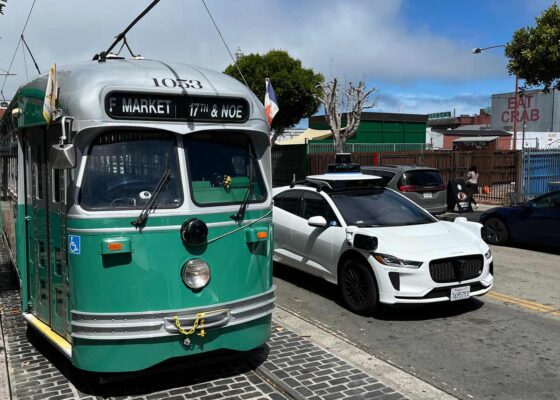Estimated reading time: 3 minutes 27 seconds
Driverless cars, renewed urban traffic concepts, new business models in and around mobility solutions – discussions about an autonomous future entail all of these vibrant topics, and so did our MaaS Conference in November 2019. Which are the challenges, cities and governments are facing? What technological solutions are already available, and which issues are vehicle manufacturers confronted with? Which role will data and data security take? What does autonomous driving entail for each individual and our everyday lives? And when and how will we get to the autonomous future?
Circling through ideas, thoughts, and knowledge regarding an autonomous future, we looked at it from various perspectives, that we will deep-dive into in our series: Opportunities & Challenges in the Autonomous future. Our first article discussed technological aspects and outlooks, but now we’re ready to look at autonomous driving from another point of view.
During the MaaS Conference, Wolf Lotter, keynote speaker and essayist at the business journal brandeins addressed a crucial topic: insecurities and concerns regarding new technology can become major impediments on their way to success. The vivid discussion at the conference led us to an interesting topic:
Autonomous Driving is not only about what we are able to do – what is it, that we want to do?
Using autonomous cars, especially driverless cars (level 4 or 5) comes with a massive transfer of responsibility to complex, complicated technology solutions, that not each and every one of us will understand. The technology will have to make a tremendous amount of decisions, and most users will never be able to fully understand which decisions are made for them, or under which criteria and priorities algorithms work. Thus, by handing over the responsibility of driving to the car itself, users need to come up with a substantial amount of trust towards manufacturers, their technology, and the necessary infrastructure when entering driverless vehicles.
Legislators will need to come up with rules for AVs. One major factor, which currently holds back Level 3 vehicles from being sold are the missing regulations. It must be clearly defined, under which circumstances a car can take over full control, whether a driver must be capable (driver’s license) and ready (hands on the wheel, eyes on the road) to intervene and how liability will be allocated in case of an emergency. Currently, such laws have not been implemented anywhere in the world.
However, neither technology and users’ willingness to rely on it, nor questions of liability are the only issues here: concerns regarding privacy issues and cybersecurity (read our article on cybersecurity in the automotive industry) threats are piling up. As pointed out above, autonomous vehicles need a smart infrastructure, and thus, cities “filled with sensors and trackers that will accumulate a lot of information about every citizen within it. Who owns that information? Who can access it? How much will basic services like transportation hinge on the surrender of personal data?”[1]. The fear of autonomous vehicles being hacked, or the fact that users will automatically be leaving lots of personal data to governments, tech companies, or mobility providers lead to a controversial discussion on how to simultaneously exploit new technologies but also protect users and their data.
If you’ve come so far in our article series, you’ve already gained a quite versatile perspective on why we are not able to use autonomous vehicles in our everyday lives yet. However, it also becomes evident that we are in the midst of a huge transformation towards driverless cars impacting the way we live. Summing things up, there are several complex questions to be answered, regarding legislation and liability, before we can fully rely on autonomous vehicles in our everyday lives. And what about you:
Would you trust your car with your life, today or tomorrow? What are your thoughts on how we need to change as a society?
Coming up: instead of only digging into the difficulties, both technologically and from a societal point of view, we also want to provide you with some of the exciting opportunities and ideas on how autonomous vehicles may shape and change cities, infrastructures, and the way we use and look at mobility in the future in our next article. Stay tuned!
Go to article Part I: Is Autonomous Driving Really Ready for the Street?
Go to article Part III: Robo cabs in the city center – a not too far away scenario









 ISO/IEC 27001:2013 certified
ISO/IEC 27001:2013 certified